The Ashurbanipal Library
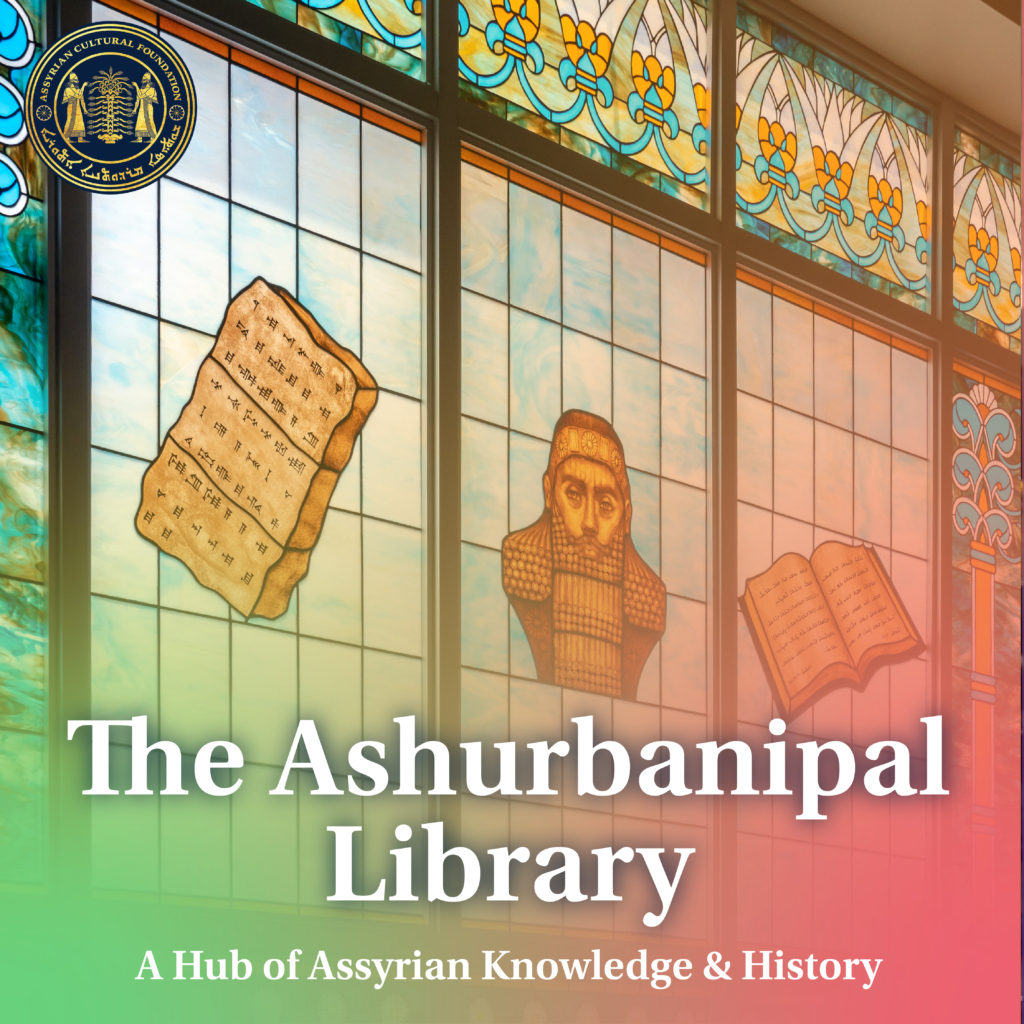
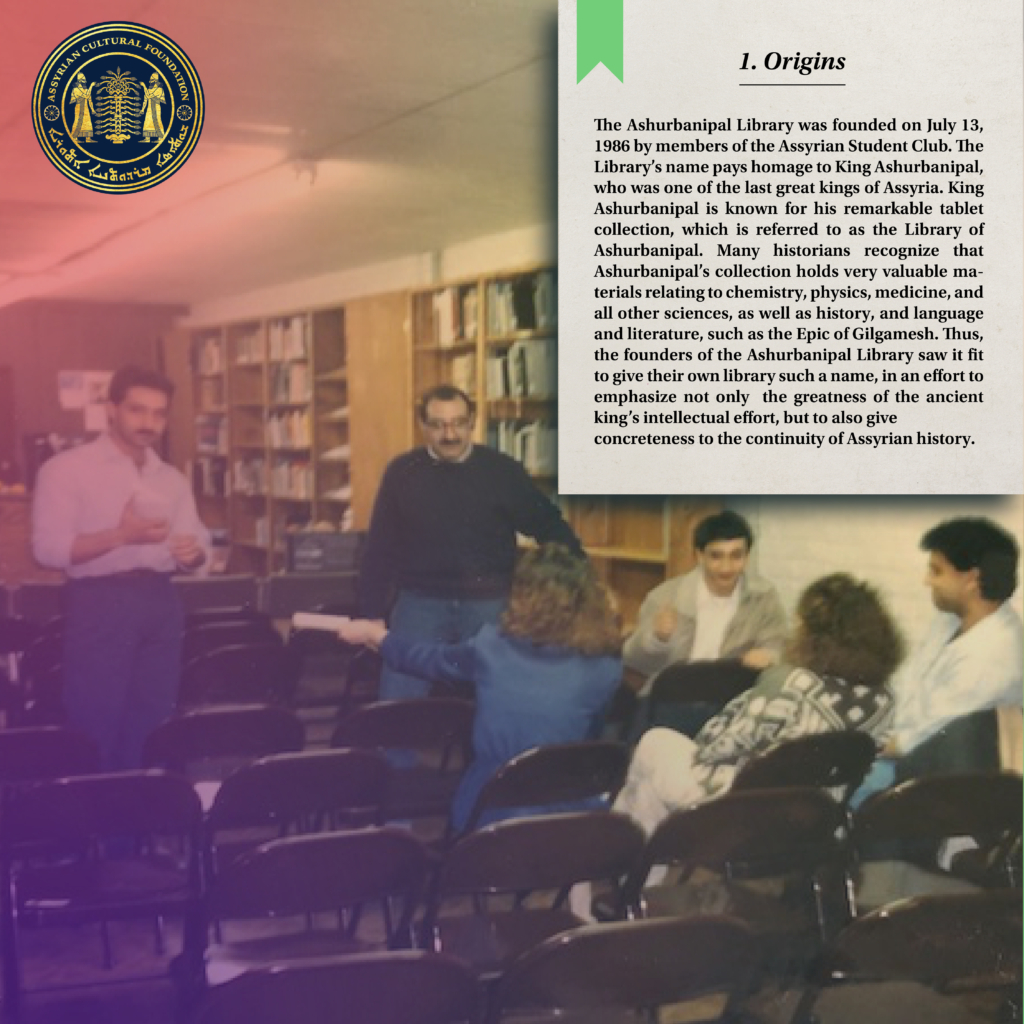
The Ashurbanipal Library was founded on July 13, 1986 by members of the Assyrian Student Club. The Library’s name pays homage to King Ashurbanipal, who was one of the last great kings of Assyria. King Ashurbanipal is known for his remarkable tablet collection, which is referred to as the Library of Ashurbanipal today. Many historians recognize that Ashurbanipal’s collection holds very valuable materials relating to chemistry, physics, medicine, and all other sciences, as well as history, and language and literature, such as the Epic of Gilgamesh. Thus, the founders of the Ashurbanipal Library saw it fit to give their own library such a name, in an effort to emphasize not only the greatness of the ancient king’s intellectual effort, but to also give concreteness to the continuity of Assyrian history.
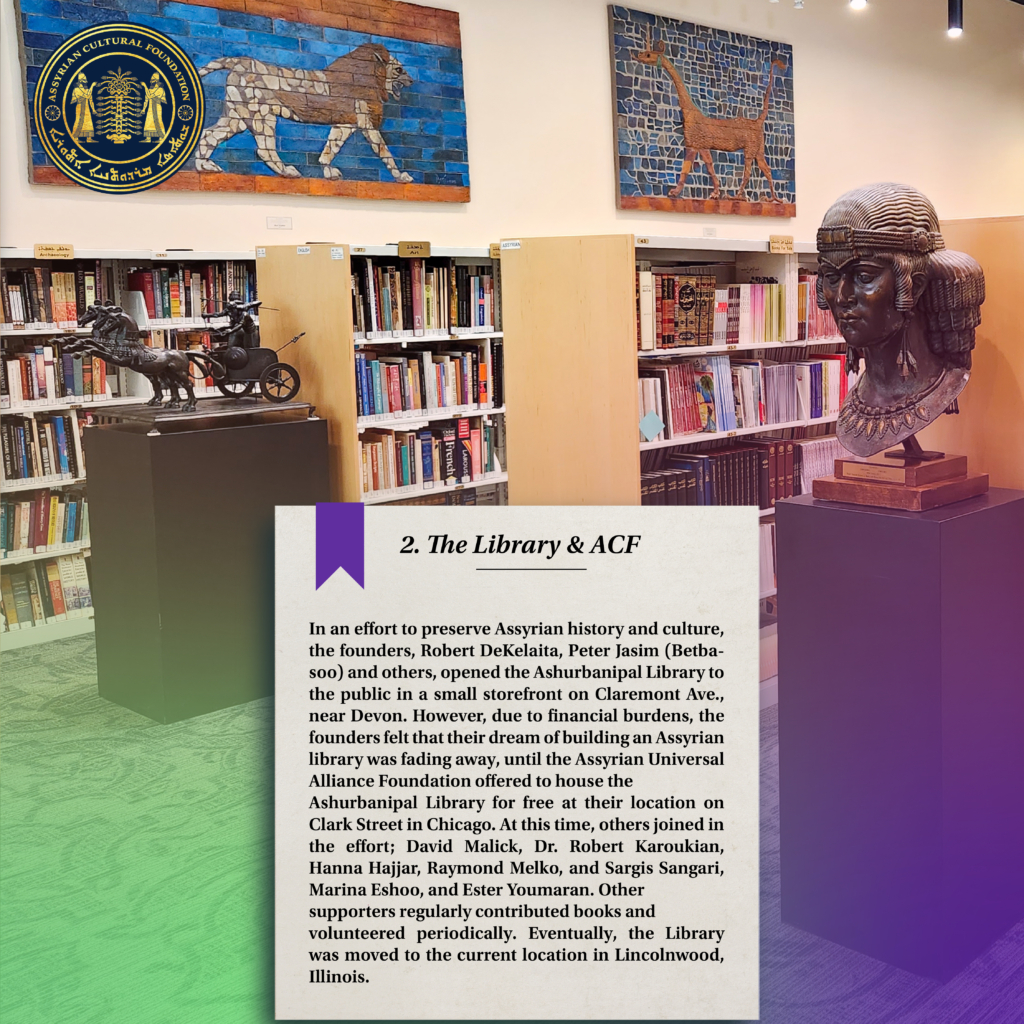
In an effort to preserve Assyrian history and culture, the founders, Robert DeKelaita, Peter Jasim (Betbasoo) and others (now Betbasoo), opened the Ashurbanipal Library to the public in a small storefront on Claremont Ave., near Devon. However, due to financial burdens, the founders felt that their dream of building an Assyrian library was fading away, until the Assyrian Universal Alliance Foundation offered to house the Ashurbanipal library for free at their location on Clark Street in Chicago. At this time, others joined in the effort; David Malick, Dr. Robert Karoukian, Hanna Hajjar, Raymond Melko, and Sargis Sangari, Marina Eshoo, and Ester Youmaran. Other supporters regularly contributed books and volunteered periodically. Eventually, the Library was moved to the current location in Lincolnwood, Illinois.
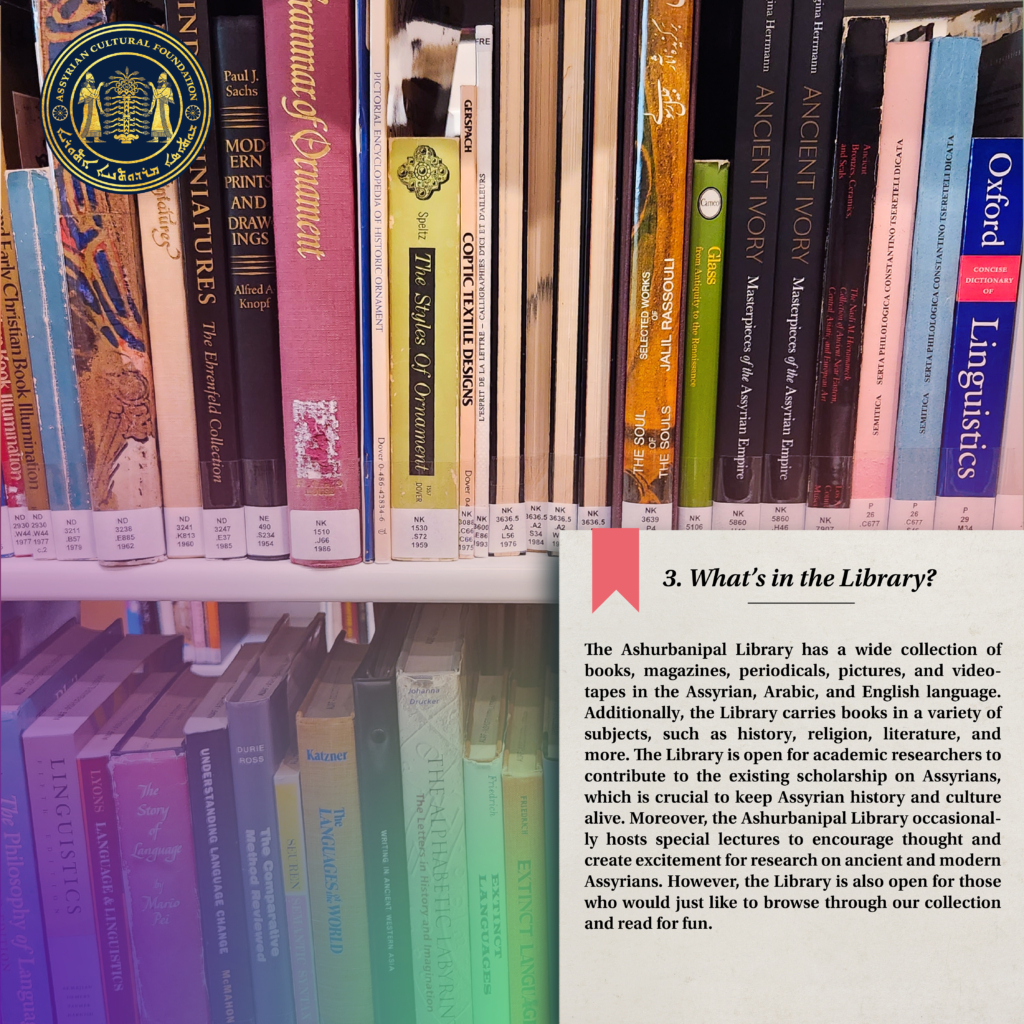
The Ashurbanipal Library has a wide collection of books, magazines, periodicals, pictures, and videotapes in the Assyrian, Arabic, and English language. Additionally, the Library carries books in a variety of subjects, such as history, religion, literature, and more. The Library is open for academic researchers to contribute to the existing scholarship on Assyrians, which is crucial to keep Assyrian history and culture alive. Moreover, the Ashurbanipal Library occasionally hosts special lectures to encourage thought and create excitement for research on ancient and modern Assyrians. However, the Library is also open for those who would just like to browse through our collection and read for fun.
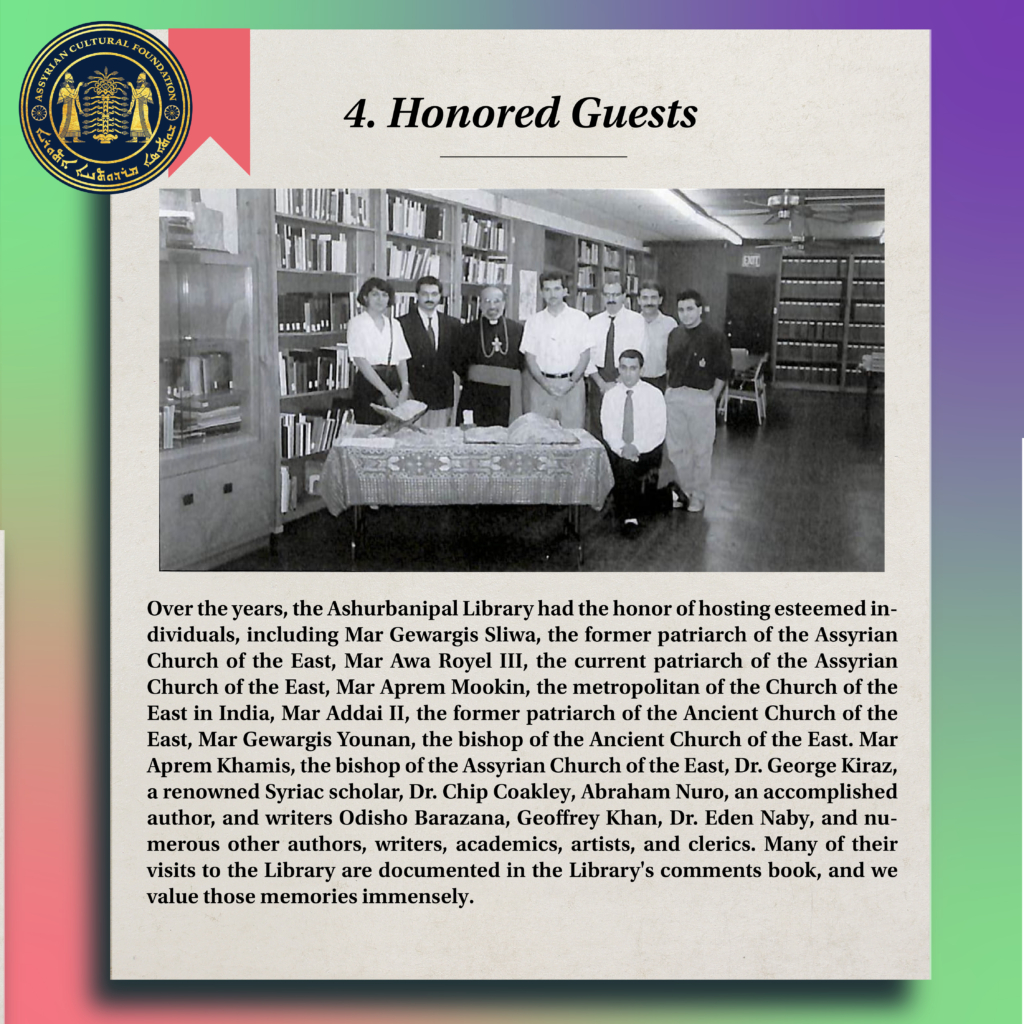
Over the years, the Ashurbanipal Library had the honor of hosting esteemed individuals, including Mar Gewargis Sliwa, the former patriarch of the Assyrian Church of the East, Mar Awa Royel III, the current patriarch of the Assyrian Church of the East, Mar Aprem Mookin, the metropolitan of the Church of the East in India, Mar Addai II, the former patriarch of the Ancient Church of the East, Mar Gewargis Younan, the bishop of the Ancient Church of the East. Mar Aprem Khamis, the bishop of the Assyrian Church of the East, Dr. George Kiraz, a renowned Syriac scholar, Dr. Chip Coakley, Abraham Nuro, an accomplished author, and writers Odisho Barazana, Geoffrey Khan, Dr. Eden Naby, and numerous other authors, writers, academics, artists, and clerics. Many of their visits to the Library are documented in the Library’s comments book, and we value those memories immensely.
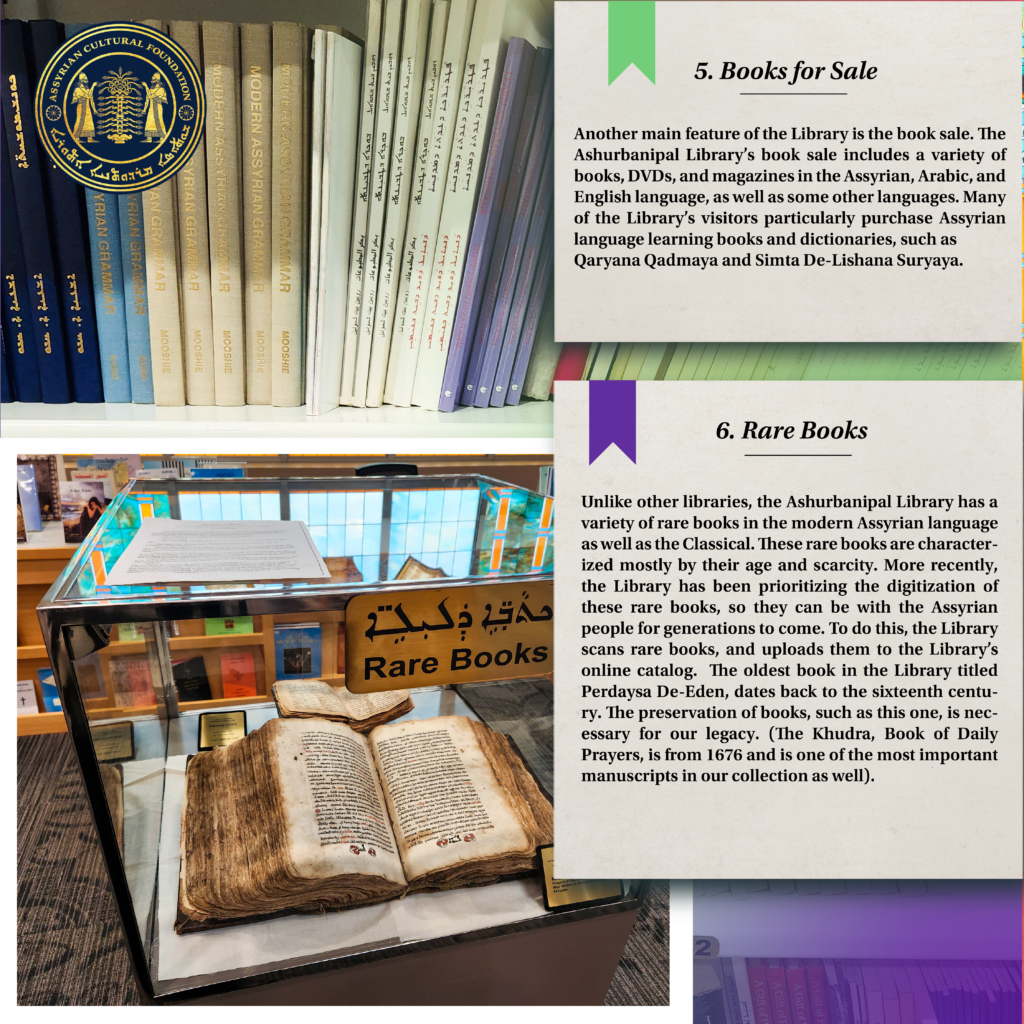
Another main feature of the Library is the book sale. The Ashurbanipal Library’s book sale includes a variety of books, DVDs, and magazines in the Assyrian, Arabic, and English language, as well as some other languages. Many of the Library’s visitors particularly purchase Assyrian language learning books and dictionaries, such as Qaryana Qadmaya and Simta De-Lishana Suryaya.
Unlike other libraries, the Ashurbanipal Library has a variety of rare books in the modern Assyrian language as well as the Classical. These rare books are characterized mostly by their age and scarcity. More recently, the Library has been prioritizing the digitization of these rare books, so they can be with the Assyrian people for generations to come. To do this, the Library scans rare books, and uploads them to the Library’s online catalog. The oldest book in the Library titled Perdaysa De-Eden, dates back to the sixteenth century. The preservation of books, such as this one, is necessary for our legacy. (The Khudra, Book of Daily Prayers, is from 1676 and is one of the most important manuscripts in our collection as well).
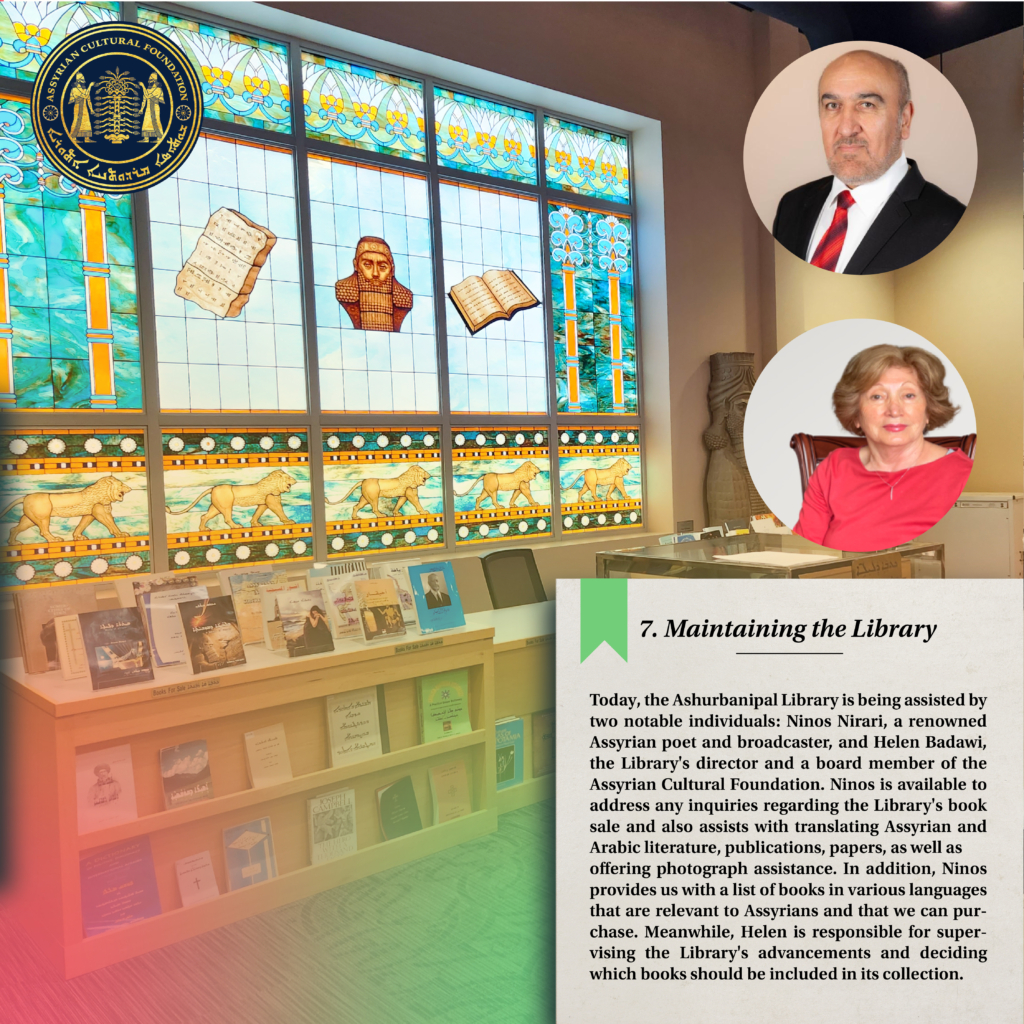
Today, the Ashurbanipal Library is being assisted by two notable individuals: Ninos Nirari, a renowned Assyrian poet and broadcaster, and Helen Badawi, the Library’s director and a board member of the Assyrian Cultural Foundation. Ninos is available to address any inquiries regarding the Library’s book sale and also assists with translating Assyrian and Arabic literature, publications, papers, as well as offering photograph assistance. In addition, Ninos provides us with a list of books in various languages that are relevant to Assyrians and that we can purchase. Meanwhile, Helen is responsible for supervising the Library’s advancements and deciding which books should be included in its collection.
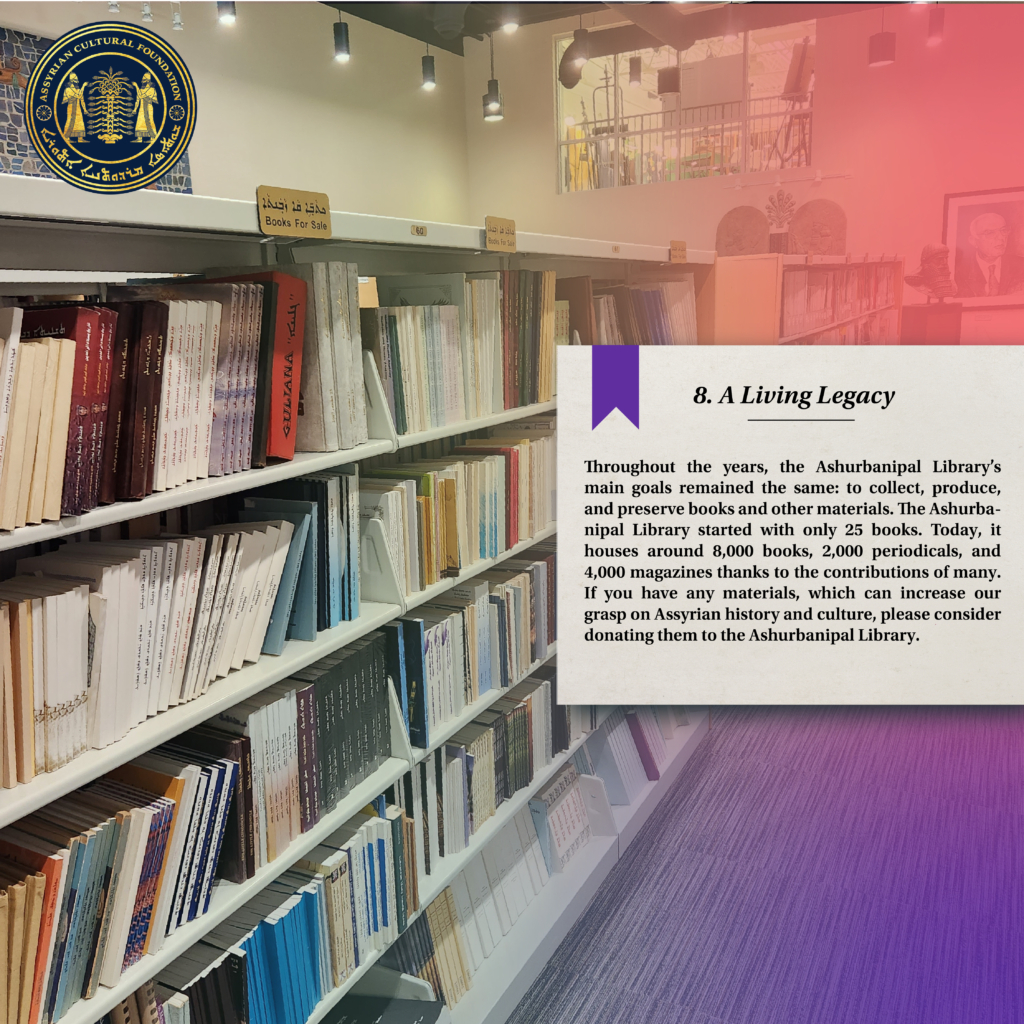
Throughout the years, the Ashurbanipal Library’s main goals remained the same: to collect, produce, and preserve books and other materials. The Ashurbanipal Library started with only 25 books. Today, it houses around 8,000 books, 2,000 periodicals, and 4,000 magazines thanks to the contributions of many. If you have any materials, which can increase our grasp on Assyrian history and culture, please consider donating them to the Ashurbanipal Library.
Written by: Sarah Gawo
Bibliography
“Ashurbanipal Library.” Assyrian Cultural Foundation, https://www.auaf.us/library/.
Ashurian, Homer. “AUA Foundation Newsletter.” Oct. 1990.
DeKelaita, Robert W. “The Ashurbanipal Library, Chicago.” 1990.
“Library of Ashurbanipal.” Wikipedia, Wikimedia Foundation, 17 Dec. 2022, https://en.wikipedia.org/wiki/Library_of_Ashurbanipal.
Shoumanov, Vasili V. Assyrians in Chicago. Arcadia, 2001.
Wells, H. G. The Outline of History. Vol. 1, Garden City Books, 1956.
